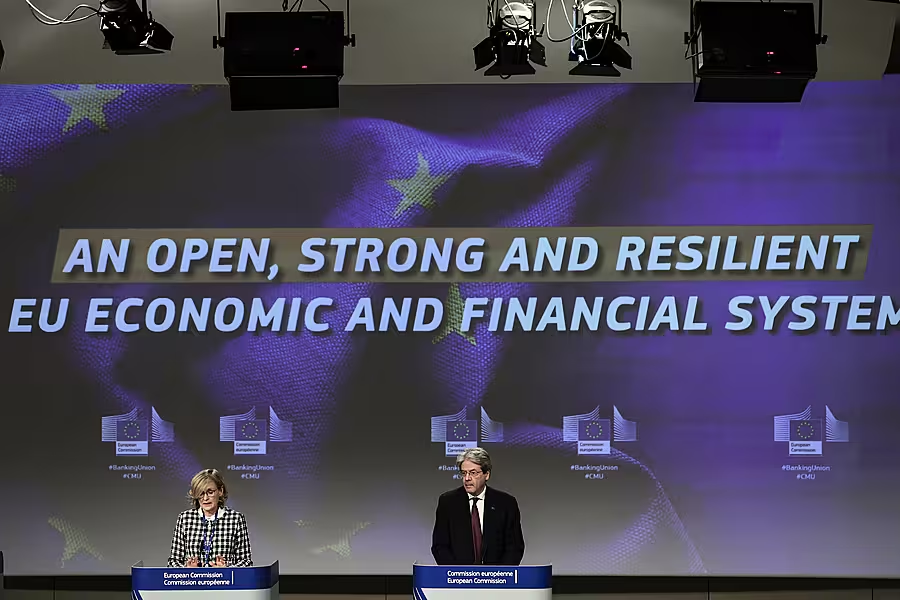Senior European Commission officials have expressed cautious optimism that European economies will rebound later this year and in 2022.
The forecast comes despite deep uncertainty over a surge in coronavirus cases and the impact of new variants of the disease.
In its winter interim economic forecasts, the European Union’s executive body predicts that growth in the 19 nations using the euro will reach 3.8% this year and next, after a 6.3% drop in 2020.
Growth in the full 27-nation EU is predicted to hit 3.7% in 2021 and 3.9% next year.

The forecast hinges on the assumption that coronavirus restrictions will remain tight for most of the first half of this year but ease in late spring, when most vulnerable people around Europe, including the elderly and those with other illnesses, are expected to have been vaccinated.
Economy commissioner Paolo Gentiloni conceded that the virus was posing major economic and social challenges, but he said “there is, at last, light at the end of the tunnel”.
Commission vice-president Valdis Dombrovskis said the prediction “provides real hope at a time of great uncertainty for us all. The solid expected pick-up of growth in the second half of this year shows very clearly that we are turning the corner in overcoming this crisis”.
But Mr Dombrovskis warned that “a strong European response will be crucial to tackle issues such as job losses, a weakened corporate sector and rising inequalities. We will still have a great deal to do to contain the wider socio-economic fallout”.
Despite the new forecasts, the eurozone countries are predicted to lag behind China and the US in bouncing back from the worst of the
pandemic.
A winter wave of coronavirus infections around Europe has meant new restrictions on travel and business activity, although companies in some sectors such as manufacturing have been better able to adjust compared to services businesses like hotels and restaurants.







